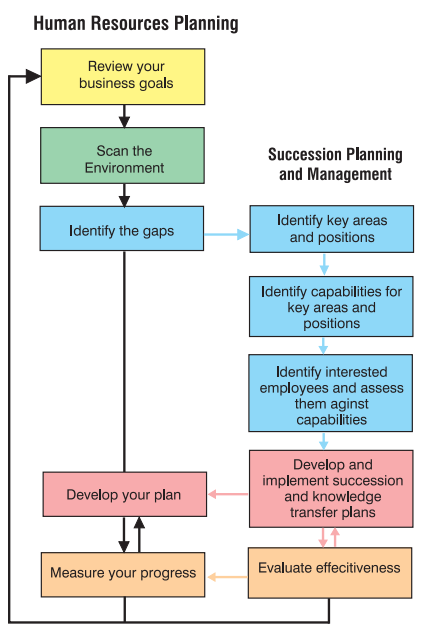Self-managing seems very natural and commonsensical, and though it seems to be the simplest of things to do, philosophy, and spiritual literature have mandated that self-managing control on emotions, desire, thinking, time, can be the most difficult to achieve.
If the challenge of past has been to remain "organised" then the challenge of future is to find ways to remain open to continuous self organisation; so that we can adopt and evolve as we go along - GARETH MORGAN – IMAGINATION
Every individual aspires to be a leader in his or her own sphere of influence. In fact, a large cache of literature and thought lines have been dedicated to being a manager and a leader. According to me, most of us in the corporate world require being managers first, and later, transition to be leaders after developing the necessary skills.
Being the manager is the first transition from self-managing to manage others. Self-managing seems very natural and commonsensical, and though it seems to be the simplest of things to do, philosophy, and spiritual literature have mandated that self-managing- control on emotions, desire, thinking, time, can be the most difficult to achieve. To manage others, one is required to self-manage, and, if we are able to achieve this, the road to lead is smooth.
The Gandhian example
This reminds me of a story about Gandhi. In his book "My experiments with truth", he shares an experience with a small village boy. His mother brings him to Gandhi and asks him to advise the boy not to consume too much of jaggery as it would harm his health. Gandhi asks the women to come the next day. She is there the next day. He again asks her to come next day. This goes on for about 15 to 20 days. He then calls the boy and says, "Beta (Son) don't eat too much jaggery, it will hurt you".
The mother is irritated and asks Gandhi that if he had to only say this very line why did he postpone it for so many days. Gandhi says, "Mother, I am very fond of jaggery. I was trying to control eating the same for the last several days. How could I tell the boy not to eat when I myself am unable to control? When I could resist the temptation, I spoke to the boy."
The point is that self-control, results in self-organization and all actions are done with conviction. Managers, who are able to do so, are able to rise up the ladder.
To draw a parallel to this example, all managers expect their team to report on time, be disciplined, mark attendance, and follow the rules of the office. While my experience has been that managers, especially in the services industry - walk in late to the office, do not like to mark attendance, find it difficult to deliver on time, are unable to get a grip on team deliverables, find the team inefficient, and there is a lack of cohesion. In the end, either the team or the management is blamed. However, there are also examples of managers who get the things done. If we analyze, these managers are self-organized, with a focus on development.
Catering to platforms of learning
In order to manage this transition of individuals to managers, it is essential for the organization to provide platforms for learning and developing the key competencies of being a manager-
● Time Management
● Delegation
● Being Assertive
● Setting and managing goals
● Giving and Receiving feedback
● Networking - internal as well as external
Competency development initiatives are required to be integrated as a part of the performance management system. Employees must be proactively identified for the next level of growth and groomed through workshops, on the job training, experiential learning, and provided opportunities to apply their learning.
The planning of such developmental activities should involve the employee's immediate managers as well as the HR functions. The programmes should be customized to the needs of the employee, and the context of the organization rather than the mere replication of some other organization. What works somewhere else may not work in one's own organization.
Managing through employee engagement
We need people who are balanced and dedicated, and who practice the style of management that can be termed as engaging. Engagement is a skill that can be learnt through interaction with practitioners, and, engaging conversations and coaching matter. These conversations with the leaders can be the differentiators.
Any learning and development initiative needs to encompass developing managers through coaching and mentoring as the key element. The leaders in the organization need to earmark time and effort to provide individual coaching.
Such people leave behind not merely higher share prices, but also a stronger organization. They build resilience and systems that can sustain any amount of turmoil in the market.
Hiring MBA's does not replace L&D initiatives in the organization. MBA education provides knowledge of business functions, and not the practice of managing. In the book "Manager, not MBA", H Mintzbery says -"trying to teach management to someone who has not managed people is like teaching psychology to someone who has never met with another human being."
Another area of grooming that is required to the managers is that they should be able to train and groom the succession talent line. Facilitating learning and development of the talent pool should be a non-negotiable competency. Generally, managers are able to deliver their own targets and manage the team, but when they move up or out, they leave back a void. The organization suffers due to lack of succession planning in the team. Monique Valcour, a leading executive coach writes in the HBR, "Becoming a great developer of employees requires managers to expand their focus from "How can I get excellent performance out of my team members?" to "How can I get excellent performance out of my team members while helping them grow?
Ways in which organizations can partake
The learning initiatives need to bring out the importance that the second part of the last question helps to answer the first. There are several ways where an organization can help managers develop themselves as well their team-
● Forum creation - Create a forum, platform and policy where the managers and their teams are updated about the operations of the organization. A clear and transparent communication on organization challenges, achievements and direction enables the teams to interact better, understand the leaders’ thought process.
● Tech enabled collaborations - Technology enable collaboration; learning and social networks that are cross functional create a broader understanding of the business. This not only enables employees to find opportunities but organisation is able to spot talent in non-linear fashion.
● Regular conversations - Immediate reporting managers should take time out for regular, pre-decided time for conversations on career goals and devise a joint approach for making it possible within organisation framework.
Employees learn by doing, this can be achieved by enabling them to participate in key organisation planning and decision making process. There should be an environment of discussion, debate, and ideation that takes learning to the next level.
Periodically, L&D team needs to take stock if employees are implementing their learning. If they are not able to utilise, then take steps with the management to create facilitating environment.

Do you think hybrid work arrangements would be a common feature of the workplaces going forward?
Trending
-
SBI General Insurance Launches Digital Health Campaign
-
CredR Rolls Out 'Life Happens' Leave For Its Employees
-
Meesho Announces 30-Week Gender-Neutral Parental Leave Policy
-
Microsoft Unveils Tech Resilience Curriculum To Foster An Inclusive Future
-
60% Indian Professionals Looking For Job Change Due To COVID: Survey
-
SpringPeople And Siemens Collaborate For Digital Transformation Push
-
86% Professionals Believe Hybrid Work Is Essential For Work Life Balance: Report
-
Almost 1 In Every 3 People's Personal Life Affected Due To Work Stress
-
Meesho Rolls Out Reset And Recharge Policy For Employees
-
80% Of Talent Leaders & Academics Say Pandemic Changed Skill Needs For Youth: Report
-
Hero Electric Rolls Out 'Hero Care' Program For Employees
-
Human Capital In Collaboration With ASSOCHAM Hosts Virtual Conference
-
IKEA India, Tata STRIVE Collaborate To Create Employability And Entrepreneurship Opportunities
-
SAP India, Microsoft Launch Tech Skilling Program for Young Women
-
DXC Technology, NASSCOM Collaborate For Employability Skills Program
-
Lenskart To Hire Over 2000 Employees Across India By 2022
-
Mindtree Launches Learn-and-Earn Program
-
Tata AIA Extends 'Raksha Ka Teeka' To Its Employees
-
Swadesh Behera Is The New CPO Of Titan
-
NetConnect Global Plans To Recruit 5000 Tech Professionals In India
-
Hubhopper Plans To Hire 60% Of Indian Podcasters By 2022
-
Corporate India Needs More Women In Leadership Roles: Report
-
Aon to Invest $30 Million and Create 10,000 Apprenticeships by 2030
-
Tech Mahindra Launches ‘Gift a Career’ Initiative for Upskilling of Youth
-
40% Women Prefer Flexible Working Options in Post-COVID World: Survey
-
3 out of 4 companies believe they can effectively hire employees virtually: Report
-
Vodafone , CGI and NASSCOM Foundation launch digital skills platform
-
Odisha: Bank, postal employees to deliver cash for elderly, differently-abled persons
-
Skill India launches AI-based digital platform for "Skilled Workforce"
-
Hiring activity declines 6.73% in first quarter: Survey
-
70% startups impacted by COVID-19 pandemic
-
Bajaj Allianz Life ropes in Santanu Banerjee as CHRO
-
Over 70 Percent MSMEs look at cutting jobs to sustain businesses
-
93 Per Cent employees stressed about returning to office post-lockdown
-
Johnson & Johnson India announces family benefits for same gender partners
-
Indian firms turning friendly towards working mothers
-
Welspun India names Rajendra Mehta as new CHRO
-
Wipro partners with NASSCOM to launch Future Skills platform



Human Capital is niche media organisation for HR and Corporate. Our aim is to create an outstanding user experience for all our clients, readers, employers and employees through inspiring, industry-leading content pieces in the form of case studies, analysis, expert reports, authored articles and blogs. We cover topics such as talent acquisition, learning and development, diversity and inclusion, leadership, compensation, recruitment and many more.
Subscribe Now













































Comment